Supplements for ADHD Management
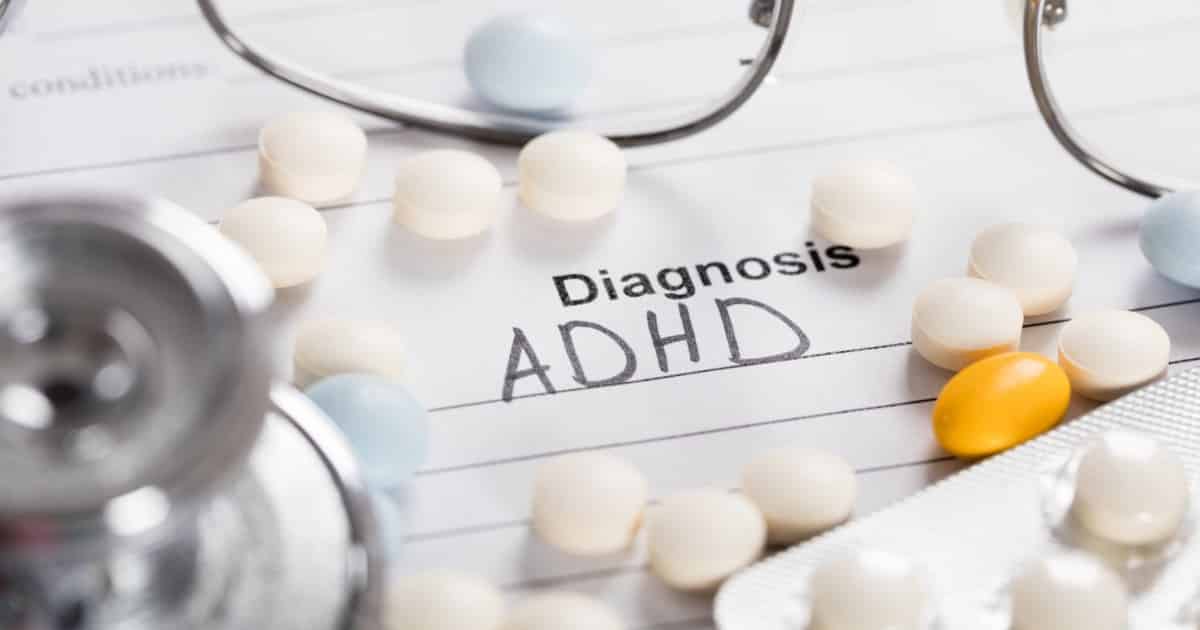
Millions of Americans struggle with Attention Deficit Hyperactivity Disorder (ADHD) every day. Globally, ADHD affects nearly 7.2% of children ages 18 and under—129 million children. Children as young as 3 years old may show symptoms of ADHD. A diagnosis is confirmed when six or more symptoms are present before the age of 12 or five or more are present in young and older adults. Three presentations of ADHD and their symptoms include:
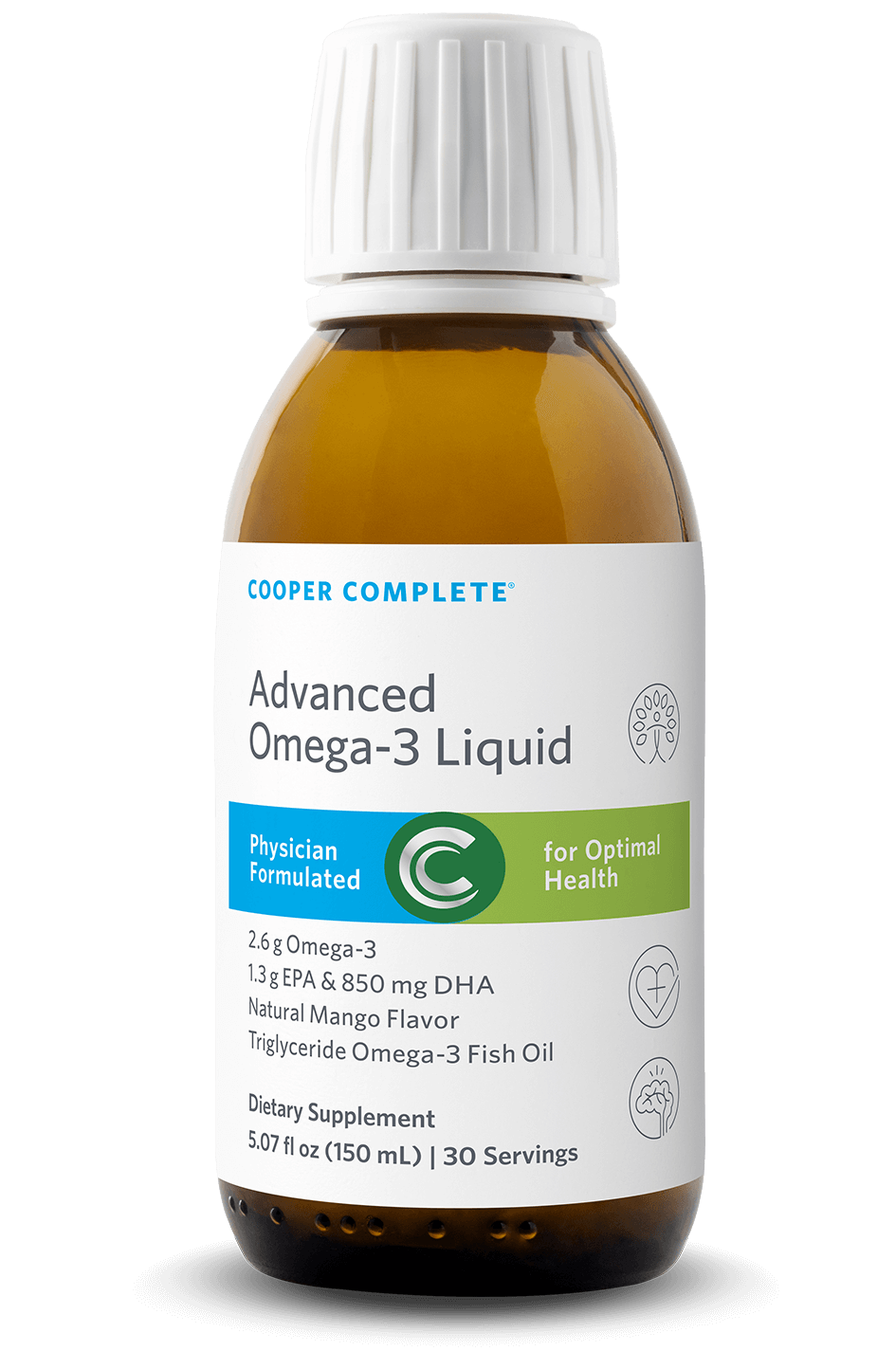
Advanced Omega-3 Liquid Supplement
Naturally flavored mango Advanced Omega 3 Liquid supplement is a molecularly distilled, high-concentration fish oil that contains 1300 mg (1.3 g) EPA, 850 mg DHA, and 175 mg DPA (Docosapentaenoic Acid) omega-3 fatty acids in each teaspoon (5 mL) serving. Omega 3 supplementation supports heart health, cognition, immune and inflammatory health.†
$52.48 Add to cartADHD predominantly inattentive presentation
- Fails to give close attention to details or makes careless mistakes
- Has difficulty paying attention
- Does not appear to listen
- Struggles to follow instructions
- Has difficulty with organization
- Avoids/dislikes tasks requiring sustained mental effort
- Loses things/forgetful in daily activities
- Is easily distracted
ADHD predominantly hyperactive-impulsive presentation
- Fidgets with hands or feet/squirms in chair
- Difficulty remaining seated
- Runs around or climbs excessively/extreme restlessness
- Difficulty engaging in activities quietly
- Excessive talking
- Acts as if driven by a motor
- Blurts out answers before questions have been completed/interrupts
- Difficulty waiting
ADHD combined presentation
- An individual meets the criteria for both inattention and hyperactive-impulsive ADHD presentations
While some children outgrow ADHD symptoms, approximately 60% of children with ADHD still struggle with it as adults—that’s more than 8 million adults in the United States. Researchers are not yet sure what causes ADHD. However, there appears to be a genetic propensity as the condition often runs in families. It is common for adults to discover they too have ADHD when their child is diagnosed. Other risk factors can include brain injury, exposure to environmental risks at a young age, alcohol and tobacco use during pregnancy and premature birth. Scientists are still studying the causes and risk factors of ADHD.
Stimulants are the main form of treatment to improve ADHD symptoms. There are no known supplements for ADHD specifically, but research is ongoing on which supplements may reduce symptoms. “I like to tell my patients that exercise is medicine,” says Cooper Clinic Platinum physician Riva L. Rahl, MD. “While exercise cannot alter or remove stress from your life, it can help you manage stress and its physical effects. Physical activity helps manage ADHD by providing a specific activity that can improve focus.” In addition, Rahl says, “studies have shown children who do physical activity before tests perform better on all areas of testing, regardless of whether or not they have ADHD.
Omega-3 for Proper Brain Development
Omega-3s are one of the most well-researched nutrients with more than 30,000 published studies exploring the various benefits. Most famously known to provide heart health benefits, omega-3s also support brain health and cognition in children. A review of 10 randomized trials involving approximately 700 children with ADHD found those who took omega-3 experienced modest improvement in hyperactivity and inattentiveness. The authors concluded that “omega-3 fatty acid supplementation, particularly with higher doses of eicosapentaenoic acid, was modestly effective in the treatment of ADHD. The relative efficacy of omega-3 fatty acid supplementation was modest compared with currently available pharmacotherapies for ADHD such as psychostimulants, atomoxetine, or alpha-2 adrenergic agonists. However, given its relatively benign side-effect profile and evidence of modest efficacy, it may be reasonable to use omega-3 fatty supplementation to augment traditional pharmacologic interventions or for families who decline other psychopharmacologic options.”
Cooper Complete Advanced Omega-3 contains 720 mg eicosapentaenoic acid (EPA) (as well as 480 mg docosahexaenoic acid (DHA) and 200 mg additional omega-3 fatty acids).
The American Psychiatric Association recommends eating oily fish such as salmon, mackerel or albacore tuna a minimum of two times per week to obtain the correct levels of omega-3s. Most American diets fall short of the recommended blood index of 7 to 8% and above. For children and adults, omega-3 fatty acids benefit overall health and should be a primary consideration in your family’s nutrition.
Probiotics to Reduce the Risk of Children Developing ADHD
Probiotics are viable bacteria or yeasts that offer health benefits such as help with bloating, constipation, diarrhea and irritable bowel syndrome. Research is starting to be conducted on the benefit of taking a probiotic to reduce the risk of developing ADHD. A small study found that children whose mothers received probiotics for four weeks before delivery and then for six months after delivery (while breastfeeding) didn’t develop ADHD. Further research will need to be conducted to prove whether probiotics could effectively lower the risk of ADHD.
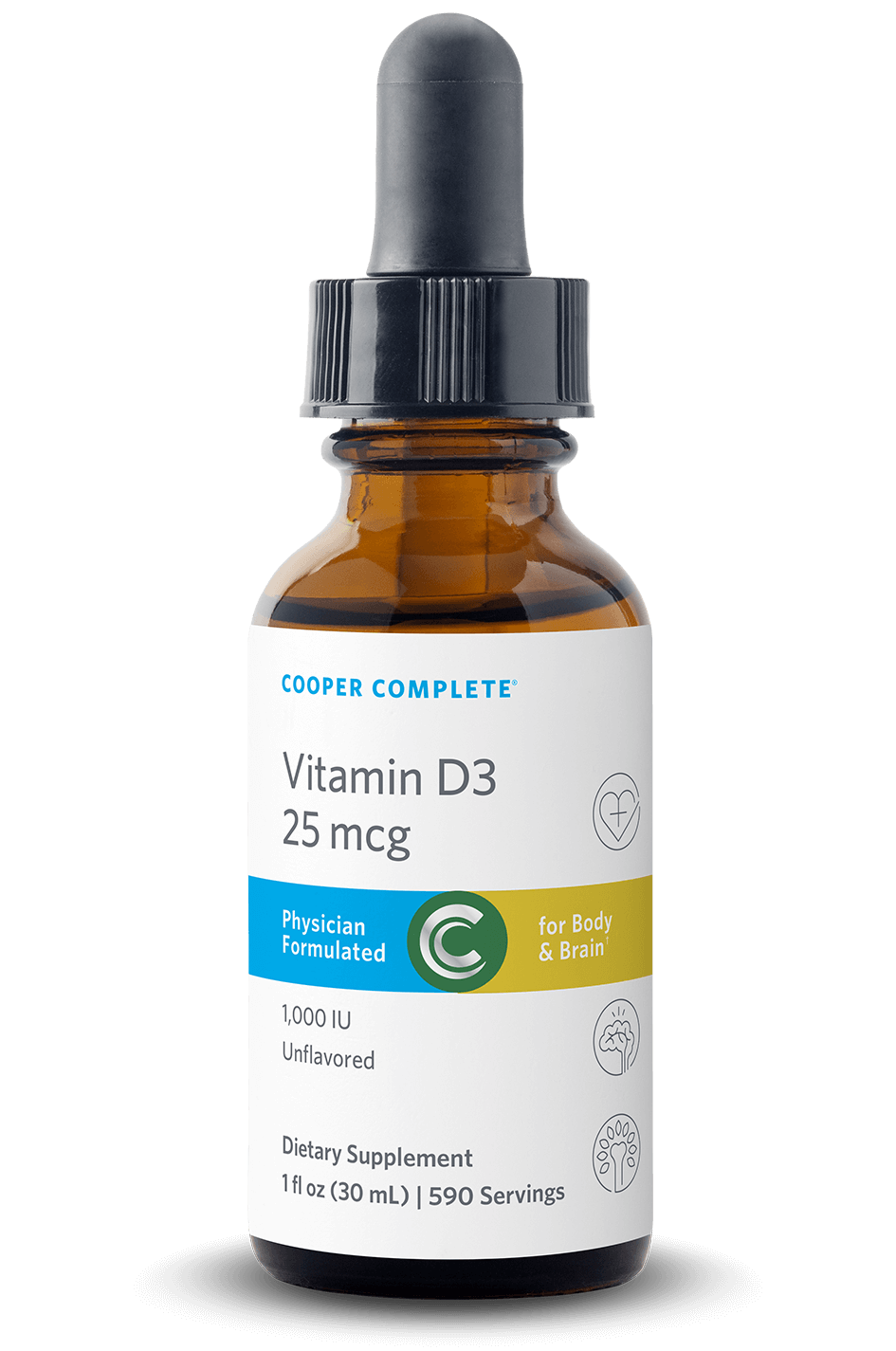
Vitamin D3 25 mcg (1000 IU) Liquid Drops
Vitamin D3 Liquid Drops are designed for individuals who don't get enough vitamin D from sunlight or diet and prefer a non-pill, liquid vitamin. Each small, one-ounce bottle provides almost 600 drops of 1000 IU (25 mcg) of vitamin D3.
$25.98 Add to cartVitamin D to Help Reduce ADHD Symptoms
Vitamin D and other micronutrients are gaining attention in the relation to improved ADHD symptoms. Many of those with ADHD also have lower levels of vitamin D. A double-blind placebo-controlled trial looked at the effectiveness of vitamin D supplementation in reducing symptoms of ADHD in adjunction to methylphenidate, sold under the name Ritalin, a medication used to treat ADHD. Two groups were assigned to receive either 2000 IU of vitamin D or a placebo in addition to methylphenidate. The trial found “ADHD symptoms decreased significantly in both groups” with the best results showing fewer symptoms in the evening. A key takeaway from this trial is the level of vitamin D supplement used. Participants who were children ages 6 to 12 were given 50 mcg (2000 IU) of vitamin D so consuming adequate amounts of vitamin D may improve ADHD symptoms. Further research is needed to clarify vitamin D’s role in improving ADHD symptoms.
In a similar study of children with ADHD, it was found that “vitamin D deficiency, hypocalcemia and hypophosphatemia were observed in children with ADHD.”
Cooper Complete offers multiple vitamin D supplementation options to help increase and maintain healthy levels. The daily multivitamin contains vitamin D3 and three stand-alone vitamin D3 supplements—25 mcg gummy and 25 mcg and 125 mcg softgels—are available.
B Vitamins and the Diagnosis of ADHD
Micronutrients including B vitamins are essential in our health and wellness. More specifically, B vitamins support brain health, mood support, cellular energy, heart health, hair and nail health and nervous system support. A study of eight vitamins (the B vitamins riboflavin (B2), niacin, B6, folate (B9), B12 and vitamins A and D) in adults with ADHD found lower concentrations of vitamins B2, B6 and B9 in those with ADHD compared to the control group. Low levels of vitamins B2 and B6 were also associated with higher severity of symptoms.
Cooper Complete offers a complete Advanced B Complex supplement containing the activated, most readily absorbable forms of all eight B vitamins.
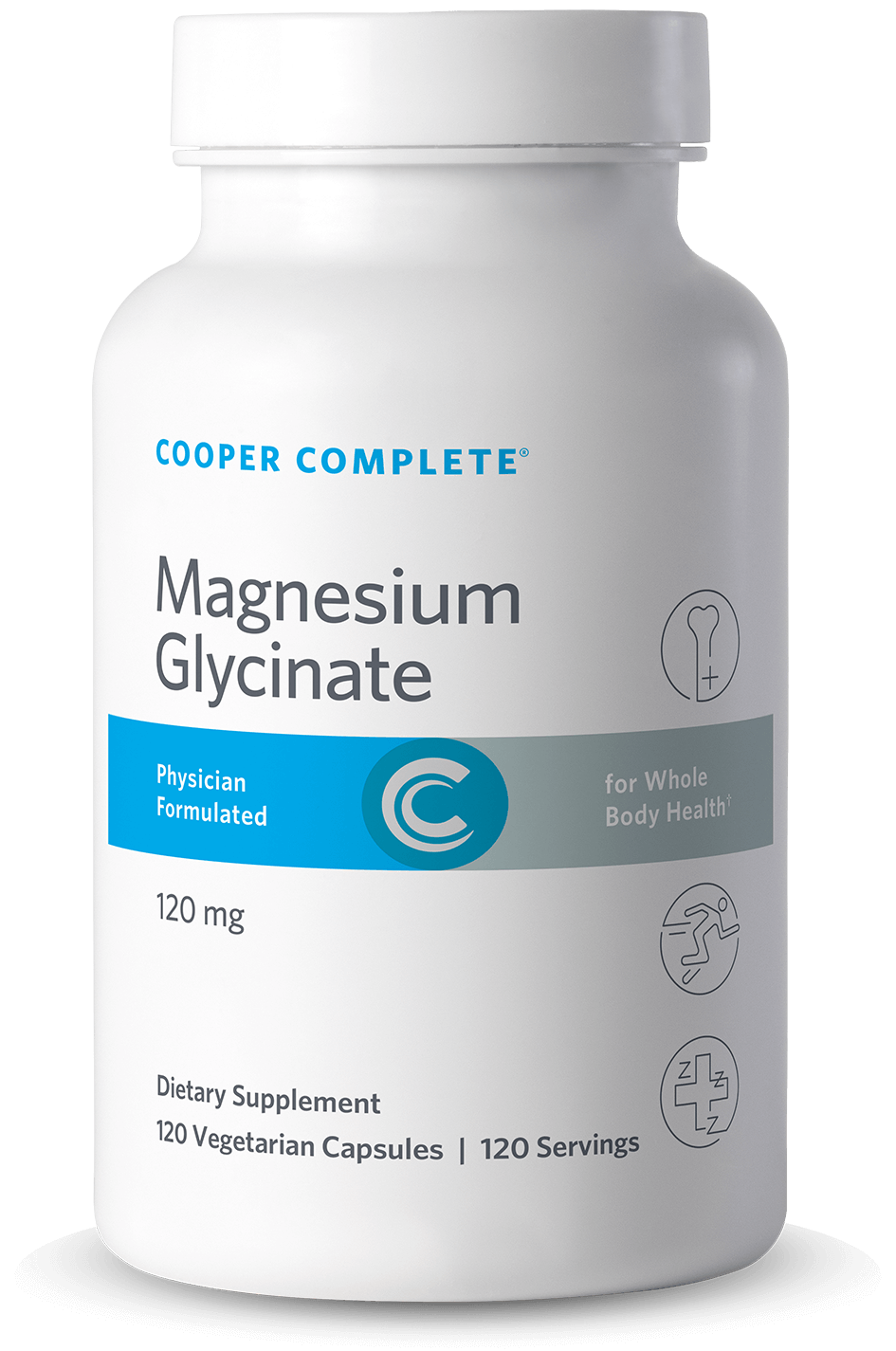
120 mg Magnesium Glycinate Supplement
Chelated magnesium glycinate (also known as magnesium bis-glycinate) is well absorbed without significant laxative effects.
$24.98 Add to cartMethyl Folate to Reduce Depressive Symptoms
ADHD can be characterized by inattention and/or impulsivity and hyperactivity which can affect daily activities. Recent research shows a correlation between depression and ADHD. In a 2019 study examining L-methylfolate and ADHD symptoms, participants supplemented with 15 mg of L-methylfolate. Results showed L-methylfolate supplementation improved mental health and depressive symptoms. Cooper Complete offers 1000 mcg (1 mg) and 5000 mcg (5 mg) doses of stand-alone Methyl Folate containing Metafolin® L-5-MTHF, the naturally occurring form found in cells to support heart, brain and mood health.
Magnesium to Support a Reduction of Reported Symptoms
Magnesium is most commonly associated with heart, sleep and bone health; recently it has gained more attention in relation to reducing symptoms of ADHD. A large meta-analysis of research regarding magnesium and ADHD symptoms has found significantly lower magnesium levels in children with ADHD than in those without. A few key conclusions of the meta-analysis include:
- “Blood magnesium levels—either in plasma, serum or whole blood—of children diagnosed with ADHD were significantly lower”
- “The subgroup meta-analysis focusing on subjects with ADHD diagnosed by definite diagnostic criteria also suggested significantly lower peripheral serum magnesium levels in ADHD children”
One small eight-week study conducted on 25 patients with ADHD and 25 controls found magnesium deficiency in 72% of ADHD patients. Those who supplemented with magnesium improved in cognitive functions “as measured by the Wisconsin card sorting test and Conners’ rating scale.”
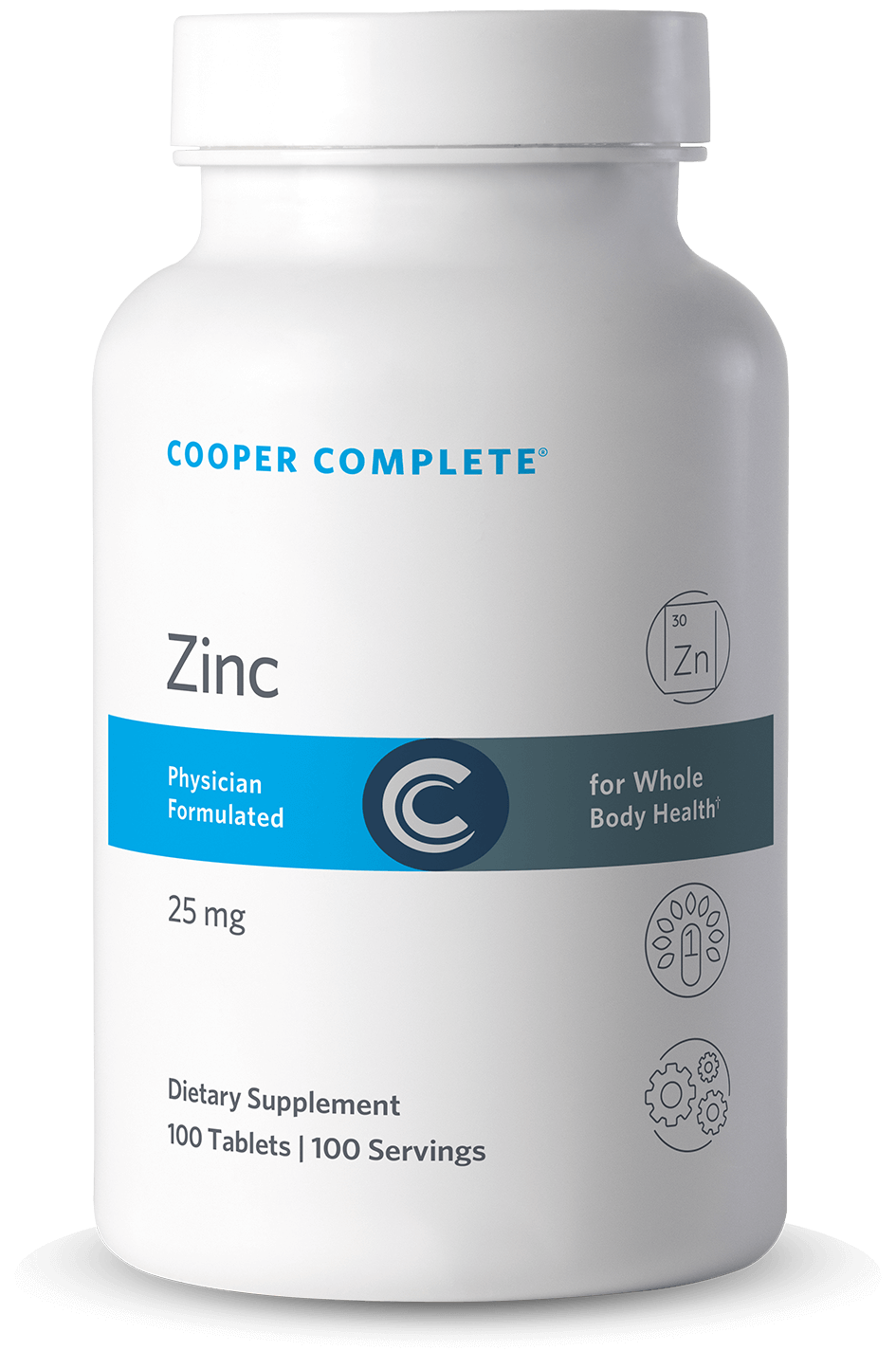
Zinc Supplement 25 mg
This Zinc Supplement is comprised of zinc gluconate and zinc citrate for optimal absorption. Zinc is important for muscle function, healthy aging, skin and immune health.
$20.48 Add to cartBoth studies state the importance of needing further, more extensive studies over more extended periods to support the research of magnesium reducing ADHD symptoms.
Cooper Complete offers multiple options for those looking to improve or maintain healthy magnesium levels. The Basic One Multivitamin provides 200 mg of magnesium, while the Original Multivitamin offers 660 mg per daily serving. Cooper Complete also offers stand-alone magnesium supplements for those who need additional magnesium. Magnesium glycinate provides 120 mg of elemental magnesium.
Zinc to Help Regulate Melatonin and Fatty Acid Levels
Zinc is an essential nutrient in the body aiding in creating a healthy immune system and the development of other important functions in the body. Growing evidence suggests zinc levels correlate to parent- and teacher-reported symptoms of ADHD. Parents and teachers can rate children on the SNAP-IV rating scale by answering a series of 90 questions related to their behavior as it relates to symptoms of attention deficit hyperactivity disorder (ADHD). Teachers can rate a child who scores above a 2.56 as inattentive and parents 1.78. A study tracking parent- and teacher-rated scores of ADHD symptoms found “zinc levels correlated with parent-rated scores for inattention as well as with teacher-rated scores for inattention.”
Another review of two studies echoes these findings saying, “it is suggested that insufficient nutritional supply of long-chain polyunsaturated fatty acids and minerals including zinc may develop ADHD symptoms.” If zinc levels for an individual become low, “zinc deficiency may result in decreased levels of essential fatty acids and hence, may contribute to hyperactivity.” Zinc deficiency increases ADHD symptoms because “zinc is involved in the production as well as control of melatonin that increases dopamine and is considered an important factor in the pathophysiology of ADHD.”
It’s been suggested that both zinc and iron deficiencies might be associated with ADHD symptoms. Although not investigated at the same time in a single sample, this study found subjects with lower zinc levels had higher ratings on the parent- and teacher-rated scores, which indicates more severe problems. Additionally, a higher hyperactivity score was associated with lower levels of both zinc and iron. Researchers also found low zinc was associated with anxiety and conduct problems. Since zinc and iron are associated with dopamine metabolism, it’s speculated that low iron and zinc levels may be associated with more significant symptoms of ADHD.
Natural sources of zinc include food and supplements. Children ages 9-13 should consume no more than 23 mg per day, teens should stay below 34 mg per day and adults no more than 40 mg daily. Read a complete list of ages and zinc limits. Foods high in zinc include red meat, poultry, seafood and fortified breakfast cereals. Foods containing lower amounts of zinc include beans, nuts, whole grains and dairy products. All Cooper Complete multivitamins contain zinc, with Original and Basic One multivitamins containing 15 mg per serving and Gummy Multivitamin containing 9 mg. In addition, Cooper Complete also offers stand-alone zinc supplement with 30 mg.
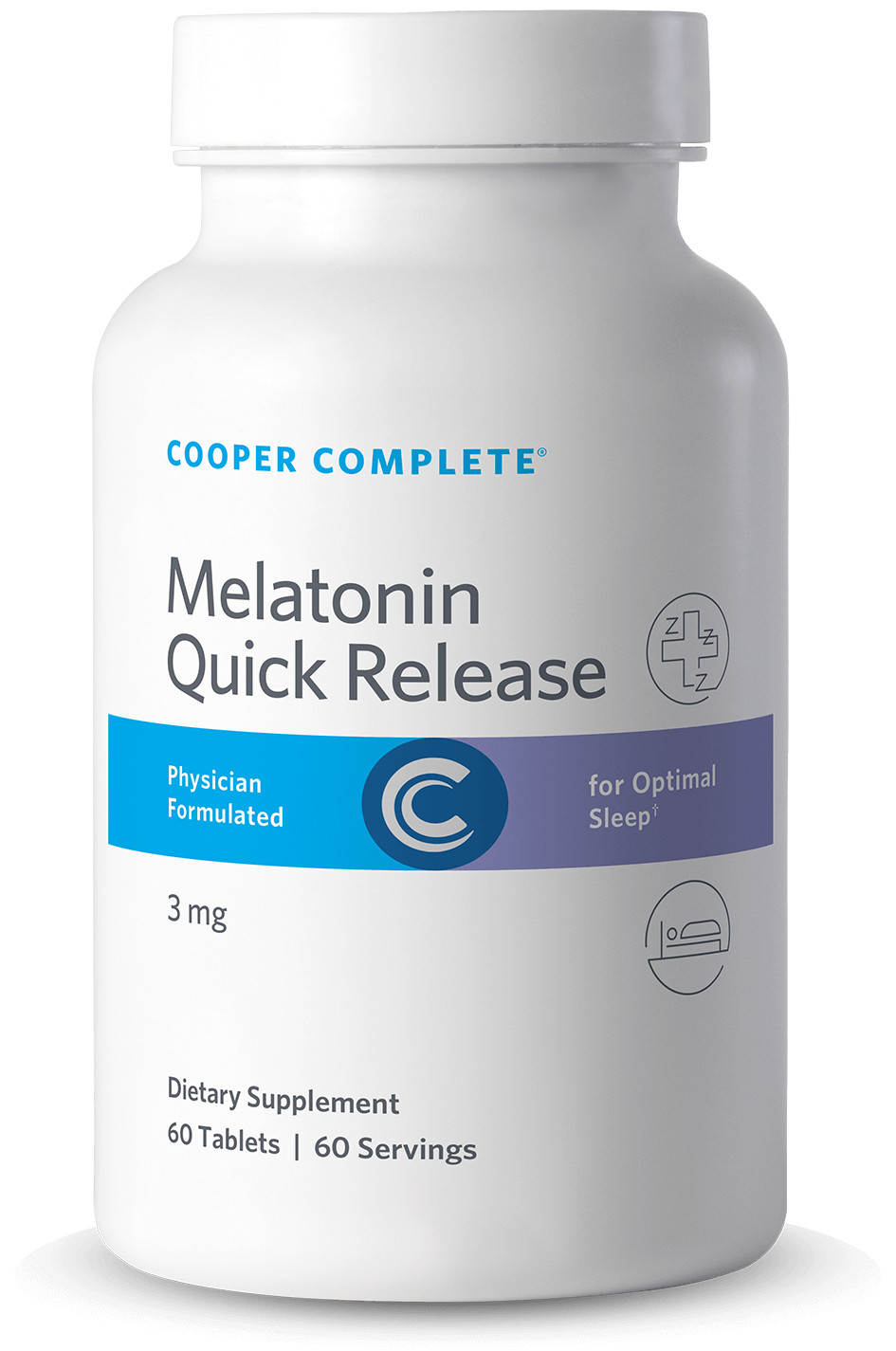
3 mg Melatonin Quick Release Supplement
Quick Release Melatonin promotes restful sleep patterns and supports falling asleep faster.† Melatonin supports normal sleep/wake cycles, healthy immune function and antioxidant activity.†
$17.98 Add to cartMultivitamins May Help Reduce Self-Reported Symptoms
ADHD treatments involving diet restriction and general supplementation have been a popular area of interest. Preliminary evidence exists for multivitamins in the treatment of adults with ADHD. A study published in the British Journal of Psychiatry followed 80 adults with ADHD who took either a multivitamin or a placebo for eight weeks. Those who consumed the additional micronutrients self-reported that inattentive and hyperactive symptoms decreased. The researchers also noted outside observers such as family members and friends saw improvements in those taking the multivitamins.
Research on modified diets and ADHD shows mixed results, even for some of the more popular eliminations of processed sugars and color additives. As with omega-3, the benefits of taking a comprehensive, daily multivitamin and a properly balanced diet are far-reaching and therefore highly recommended for optimal health.
Melatonin for Better Sleep
Conventional treatment of ADHD often includes stimulant medication. One study concluded supplemental melatonin may help improve the sleep of children with ADHD who are taking stimulant medications. Melatonin, a naturally occurring hormone, helps control sleep and wake cycles. Melatonin doesn’t directly decrease symptoms of ADHD but can benefit those with ADHD by reducing insomnia. Sleep is a vital component of mental health, attention, decision-making, coping and emotional regulation. Cooper Complete offers melatonin—quick release and prolonged release—to help support normal sleep and wake cycles.
For both children and adults, ADHD can present significant challenges, but proper treatment and a healthy lifestyle can make a huge difference in those who are affected. While there are no specific supplements for ADHD, research shows nutritional supplements may improve symptoms. With or without ADHD symptoms, taking the right dietary supplements can help enhance your health and wellness. Talk with your doctor to see which supplements may be right for you.
